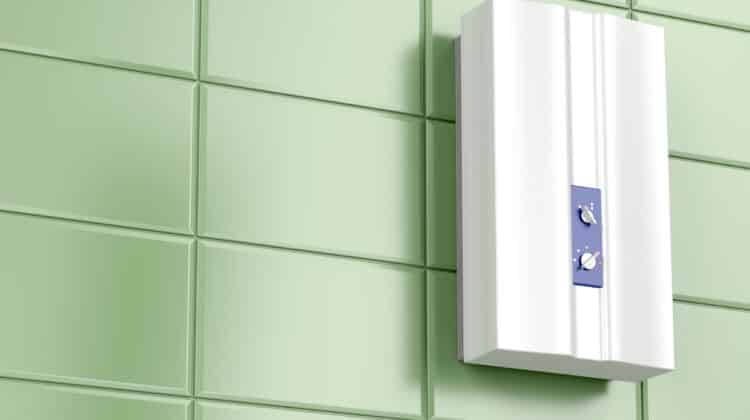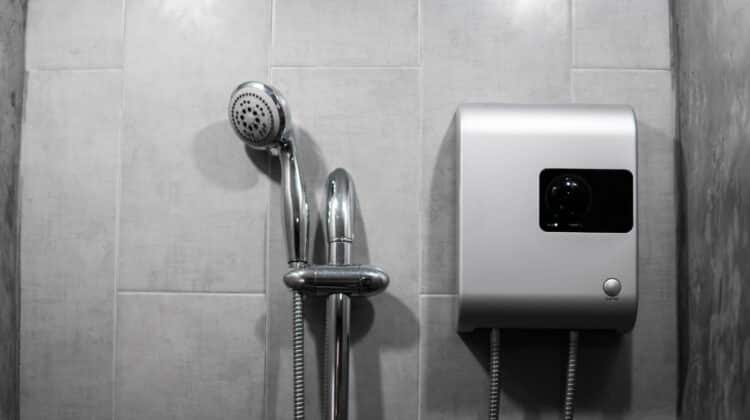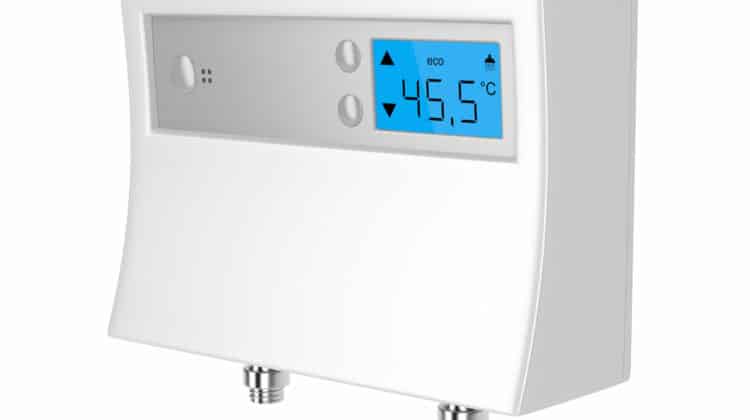Tankless water heaters provide hot water on demand for household appliances. Knowing this fact, many homeowners ponder the question: Can you heat a pool with a tankless water heater?
Table of Contents
What is the possibility of heating your pool with the same tankless water heater?
Although the type used for household hot water isn’t designed for this purpose, it is possible to heat a pool making use of a tankless water heater. It’s possible that you will need to adjust it on a different circuit from the pool’s main circulation system.
Chemicals in pool water might also cause problems. As a result, heating your pool using a tankless water heater may be difficult.
You don’t have to recreate the wheel if you want to get in and give it a shot. We have listed several potential dangers and possibilities.
How does a traditional swimming pool heater work?
Heat pumps, electric heaters, and gas heaters are all common pool heaters that are part of the pool’s circulation system. These extract chilled water from the pool using a pump, filter it, and then heat it with a heater. The pool is then refilled with cleaned and heated water.
As previously said, pool heaters that are part of this system come in a variety of shapes and sizes. They’re all tankless, which means they don’t keep water in a tank.
In this article, we will be discussing tankless heaters designed to heat hot water used in the home and if these can also be used to heat up a pool.
Why tankless water heaters are preferred?
- Tankless water heaters are cost-effective — There are a few popular techniques to avoid excessive utility expenditures. Pool coverings can be purchased or thicker insulation can be installed to shield pools from the sun. Neither of these, however, addresses the fundamental issue: overworked pool heaters.
One of the best methods to save energy in pools, according to research, is to buy a smaller, more efficient heater.
Most popular appliances work in the same way that a typical in-home water heater does: a big reservoir of water is continuously heated until it is needed elsewhere, and then another batch of water is added to the tank.
- Tankless water heaters save energy — On the other hand, tankless water heaters use energy only when they are needed.
Similarly, tankless heaters may transform a cool shower into a warm one. A correctly designed tankless heater can satisfy the on-demand heating needs of a medium-sized pool while utilizing a fraction of the energy a typical heater would.
How should a tankless water heater be used to heat a pool?
It’s important to note that using a home hot water tankless heater to heat a pool might be a good idea, at least in theory.
The theory goes that if you make use of a tankless water heater to heat up a pool, it will work in the same way as it does for household hot water.
When the flow sensors detect water flow, the heating elements or burners in a tankless water heater ignite for domestic hot water. Turning open a hot water faucet, for example, draws groundwater from your water supplier.
If you heat your pool with a tankless water heater, the pool will be your water source rather than groundwater.
As a result, you’ll need to pump water from the pool into the tankless unit’s input.
The flow sensor will light the burner or turn on the heating elements when the pumped water reaches your tankless heater.
The rest of the procedure is the same as it would be if you were heating water for your household appliances.
As a result, a heat exchanger is heated by the heating elements or burners. As the water travels over the heat exchanger, the heat is transferred to the water. The water will leave the heater and runs into your pool after it has reached the required temperature.
This theory appears to be straightforward, however, there are some disadvantages.
Cons of using water heaters to heat your pool
- Tankless water heaters have low/modest flow rates
- Pool heaters are installed after the pool filter
- Pools are best heated with traditional pool heaters
- Pools treated with chemicals can damage water heaters
The flows rates of these tankless water heaters are relatively low. The majority of them have flow rates of roughly 5-7 GPM. Some expensive gas-powered machines can reach double digits in price, but they’re not cheap.
Pool pumps have higher flow rates than the average tankless water heaters. If you run water via a tankless heater too quickly, the water will not reach the proper temperature. It’s also likely to be cut out to avoid damage. You won’t obtain warm water for your pool in any case.
The flow rate of the pump is determined by numerous parameters, including the size of the pool. If you have a small pool, you might be able to get away with using a tankless heater using your pool pump.
Otherwise, you can avoid this by running your tankless heater on a separate the circulation system from your major one. That means drawing water from your pool then sending it through a tankless heater with a reduced flow rate.
This is distinct from your regular pool pump and filtering to keep your water clean. As a result, there would be two circulation systems: one is meant for heating and the other for cleaning. If you don’t have natural gas or don’t want to attach a pool heater, then you can make use of a propane tankless heater.
The filter on your pool’s circulation system normally comes before the heater and there’s a reason behind that. You don’t want debris from the pool to block your pool heater. This is prevented by the filter.
It’s the same with a tankless water heater. If you pump pool water straight using a tankless water heater, especially from an outdoor pool, you risk clogging the input and outlets.
The heater will not work properly in either case because of the lack of flow or that the heated water is unable to flow as it should.
You may install strainers between the tankless water heater and the pump. The strainer placed on top of the pump might be the only way to keep the water feed to the tankless heater clear of debris.
Traditional pool heaters are ideal for heating pools due to their design. They’re made of materials that can endure pool water that has been chemically treated.
Chemically treated pool water is not compatible with a tankless water heater designed for domestic hot water.
As a result, running pool water through your tankless water heater may damage it. For this reason, some manufacturers explicitly mention that their products cannot be used to heat pools.
Due to the chlorine concentration of the water getting into your tankless heater may have dispersed, you may be able to get away with it now. However, there is no assurance and the damage may still happen.
Other ways to heat your pool with a tankless water heater
There is a simpler way than improvising a tankless water heater to fulfill a job it wasn’t meant for. You are better off investing in a tankless heater developed exclusively for pool heating.
A tankless heater has the advantage of being able to be put on your current pool circulation system. It will be debris-free water because it will be directly after your pool filter.
This type is suitable for pools with a capacity of up to 15,000 gallons. As mentioned earlier, its parts, like those of traditional pool heaters, can handle pool chemicals with correct dilution.
It’s also a neater option than the previous workarounds.
The best water heater option to heat your pool
Despite the fact that tankless water heaters for domestic hot water aren’t designed to heat pools, they can be used to do so. However, it may need tinkering with your pool circulation system because you risk damaging your heater as a result of chemicals in the pool water and waste in the water.
The ideal option is to invest in a tankless water heater made exclusively for pools, such as the one stated above.





